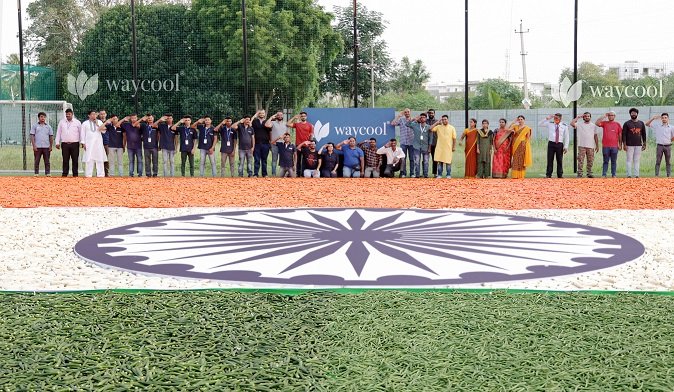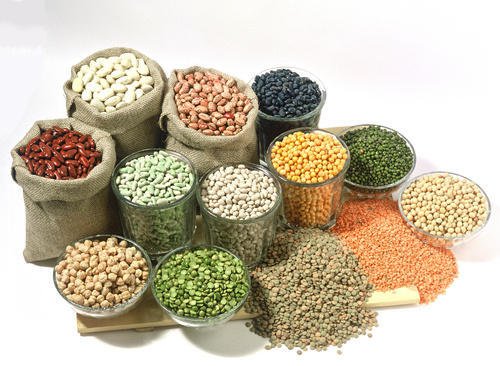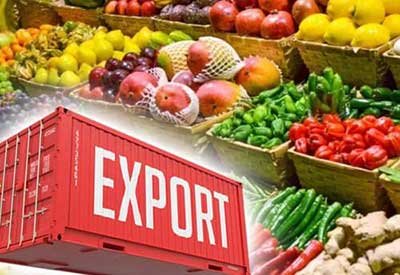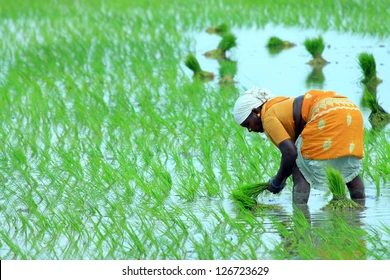By Mahesh Girdhar President – Crop Nutrition, Deepak Fertilisers and Petrochemicals Corporation Limited
Agriculture being backbone of the country, and economic development being directly impacted by growth in agriculture sector, makes all agri value chain equally responsible to continuously work on products output and innovation. Use of balance nutrition and nutrient use efficiency will help farmer to increase quality, quantity and shelf life of their produce and help agri value chain.
There has been significant focus on improving agricultural production and a lot has been achieved. However, a large portion of food is lost at the end of the supply chain, known as food waste. “Food waste” can be defined as food discarded or alternatively the intentional non-food use of the food or due to spoilage/expiration of food. Globally, around 14 percent of food produced is lost between harvest and retail. This equates to a loss of $400 billion per year in food value, while an estimated 17 percent of total global food production is wasted (11 percent in households, 5 percent in the food service and 2 percent in retail). In India around 90000 Cr value farm produce is wasted every year.
Food loss includes the food loss across the food supply chain from harvesting of crops until its consumption. The losses can broadly be categorized as weight loss due to spoilage, quality loss, nutritional loss, seed viability loss, and commercial loss. Magnitude of food losses in the food supply chain vary greatly among different crops, areas, and economies. a significant amount of produce is lost in postharvest operations due to a lack of agriculture nutrition knowledge, in efficient use of fertilizer, inadequate harvesting technology and poor storage infrastructure.
Significant percentage of post-harvest losses can be controlled through improving pre harvest factors which are causing losses. We can improve post-harvest losses through intervention in the field production to a large extent. This needs improvised intervention during in field operations. One Such intervention to improve pre harvest is supplying balanced nutrition which significantly improves Quality, yield and shelf life which will help to reduce losses in the agri value chain.
Role of Balance Nutrition
Crop requires an adequate supply of all essential nutrients for optimum growth. If more than one is limiting/short, growth is determined by the nutrient which is in lowest/limited supply. Seventeen essential Nutrients are required for optimal growth and development of plants. A deficiency of even one Nutrient negatively affects the crop’s life cycle. This has been explained justly by the ‘Law of the Minimum – Liebig Principle’. This is similar to the fact that a chain is only as strong as its weakest link. If several nutrients are in short supply, it is necessary to apply all of them to derive optimum production. Balanced plant nutrition (BPN) is an integrated approach to meet the nutritional requirements of the crop throughout its lifecycle. Use of BNP will help in maximizing crop yield and Crop shelf life. Providing balanced nutrition to crops throughout their growing season encompasses all aspects of the 4R stewardship. Essential Nutrients are required to be available to crops at the right time, at right dose through right Source and at right stage of crop.
The productivity, quality & shelf life of produce depends on how nutrient balancing is happening in crops because balanced nutrition plays an important role in increasing the shelf life of the produce. Shelf life of produce increased due to increase in total dry matter or total soluble solid and for increasing the dry matter, there is need of NPKS and micronutrients in balanced proportion.
With aim in Increasing farmer Income through use of Innovative fertiliser technology. Deepak Fertilisers and Petrochemicals Corporation Limited (DFPCL) started journey of developing innovative nutrient solutions since 2018. We first launched a high nutrient use efficiency solution by name of Smartek. Then we have started introducing crop specific and stage specific balance nutrition solution with brand name Croptek (Crop nutrient solution with all essential major and Micro nutrient) and Solutek (crop and stage Specific product with required nutrient for crops).
Nutrient Unlock Technology (NUT) which unlocks nutrients and enhances bio-availability there by enhancing nutrient use efficiency. By adopting these balance nutrition solutions and Nutrient use efficiency, farmers can minimize wastage and under-dosing of the required nutrients at different stages of the crop growth. Our Croptek Onion which launched in November last year. Onion Crop Shows improved growth parameters like plant height and number of leaves, neck thickness and overall vigour of crop. This led to significant increase in marketable A&B quality onion over farmer practices. There is also increase in shelf life for more than 6 months. All above factors have contributed to farmer increase absolute marketable produce and flexibility to sell at right market price.
Deepak Fertilisers and Petrochemicals Corporation Limited has developed and Launched Crop & stage specific Water-soluble solution Called Solutek based on 3-4 years of internal research and it is validated through various Institute. Soultek is research-based solution containing balanced nutrition as required at different stages of plant growth. Solutek helped farmers to reduce the cost of fertiliser application. Farmer realises increase in yield, good quality, colour and increased shelf life in all crops. This helps farmer to realise well in export market. There is significant reduction in greenhouse gas emission that leads to lower greenhouse gases, soil pollution and improvement in Soil health.
By Mahesh Girdhar President – Crop Nutrition,














